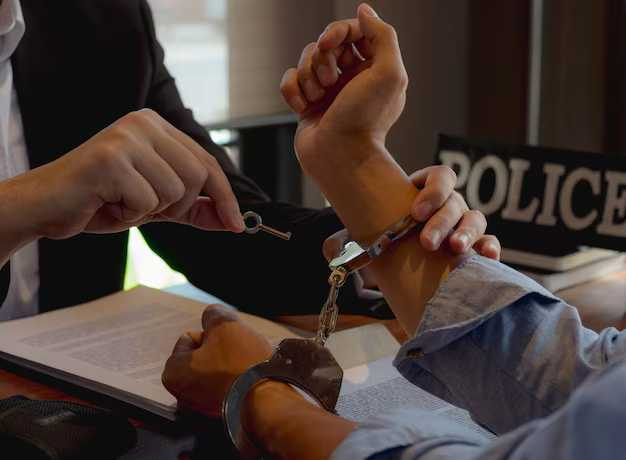Getting arrested can be overwhelming, leaving you feeling anxious, scared, or unsure of what to do next. However, knowing how to handle the situation can make a significant difference in protecting your rights and navigating the legal system. This step-by-step guide will help you stay calm, informed, and protected.
Stay Calm and Composed
The most important thing to do if you are arrested is to stay calm. Avoid panicking, as remaining composed will help you think clearly. Remember, being arrested does not mean you are guilty. The police must inform you of the charges against you, so listen attentively while staying as calm as possible.
Ask for the Reason for Your Arrest
Law enforcement is legally required to inform you why you are being arrested. Politely ask for the reason and pay close attention. If the officers do not immediately explain, request clarification. Knowing the charges you are facing is essential for your defense.
Remain Silent
One of your most crucial rights when arrested is the right to remain silent. You are not required to provide any information beyond your basic identifying details (such as your name and address). Avoid answering questions related to the case or making any statements, as they could be used against you later. Politely inform officers that you wish to remain silent until you have legal representation.
Request Legal Representation
You have the right to an attorney during questioning. If you do not have a lawyer, request a public defender. Assert this right immediately. Do not attempt to negotiate or discuss your case without an attorney present, as anything you say could be used against you.
Do Not Resist Arrest
Even if you believe the arrest is unfair, do not resist. Resisting arrest can lead to additional charges and worsen your situation. Follow the officers' instructions and save any objections for when you are with your lawyer or in court.
Avoid Volunteering Information
While you have the right to remain silent, you should also avoid volunteering any unnecessary information. Explaining yourself or denying accusations may be tempting, but it is best to wait for legal counsel before discussing your case. Your words can be used against you in unexpected ways.
Understand Your Rights During Booking
After being arrested, you will go through the booking process at the police station. This includes recording your personal information, fingerprinting, and taking photographs. While you must provide your name and address, you are not required to answer additional questions.
You also have the right to a phone call. Use it to contact a lawyer, family member, or trusted friend to inform them of your situation. Having someone aware of your arrest can help you get the assistance you need.
Know the Bail Process
Depending on the charges, you may be eligible for bail. If bail is set, you can pay it immediately or work with a bail bond agent if the amount is too high. If you cannot afford bail, you may have to remain in custody until your court date. Speak with your lawyer or a trusted person for assistance with this process.
Prepare for Court
After booking, you will be scheduled for an arraignment or hearing, where the charges against you will be formally presented, and you will enter a plea. The judge may schedule additional court dates or offer a plea deal.
Having an experienced criminal defense lawyer at this stage is critical. Your lawyer will provide legal advice, help you understand the charges, and guide you through the court proceedings.
Stay Informed and Stay Connected
Navigating the legal system can be complicated, so it is crucial to stay informed and maintain communication with your lawyer, family, and trusted friends. They can provide support and ensure you take the proper steps for your defense.
Conclusion
Being arrested can be intimidating, but knowing how to respond can help protect your rights and minimize potential consequences. Stay calm, assert your right to remain silent, request legal representation, and avoid making statements without your personal injury lawyer present. Following these steps will help you navigate the arrest process effectively and build the best possible defense for your case.




















